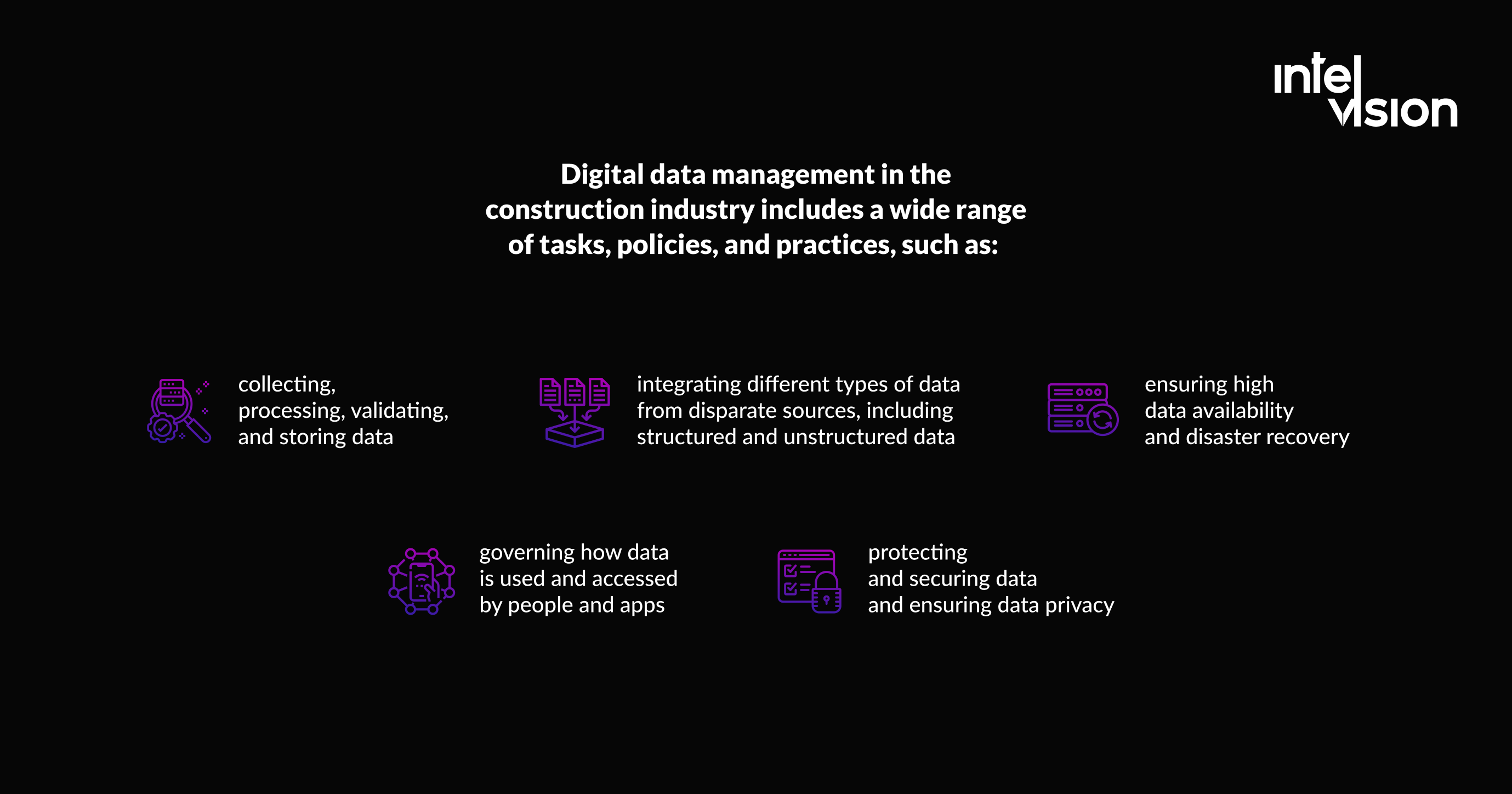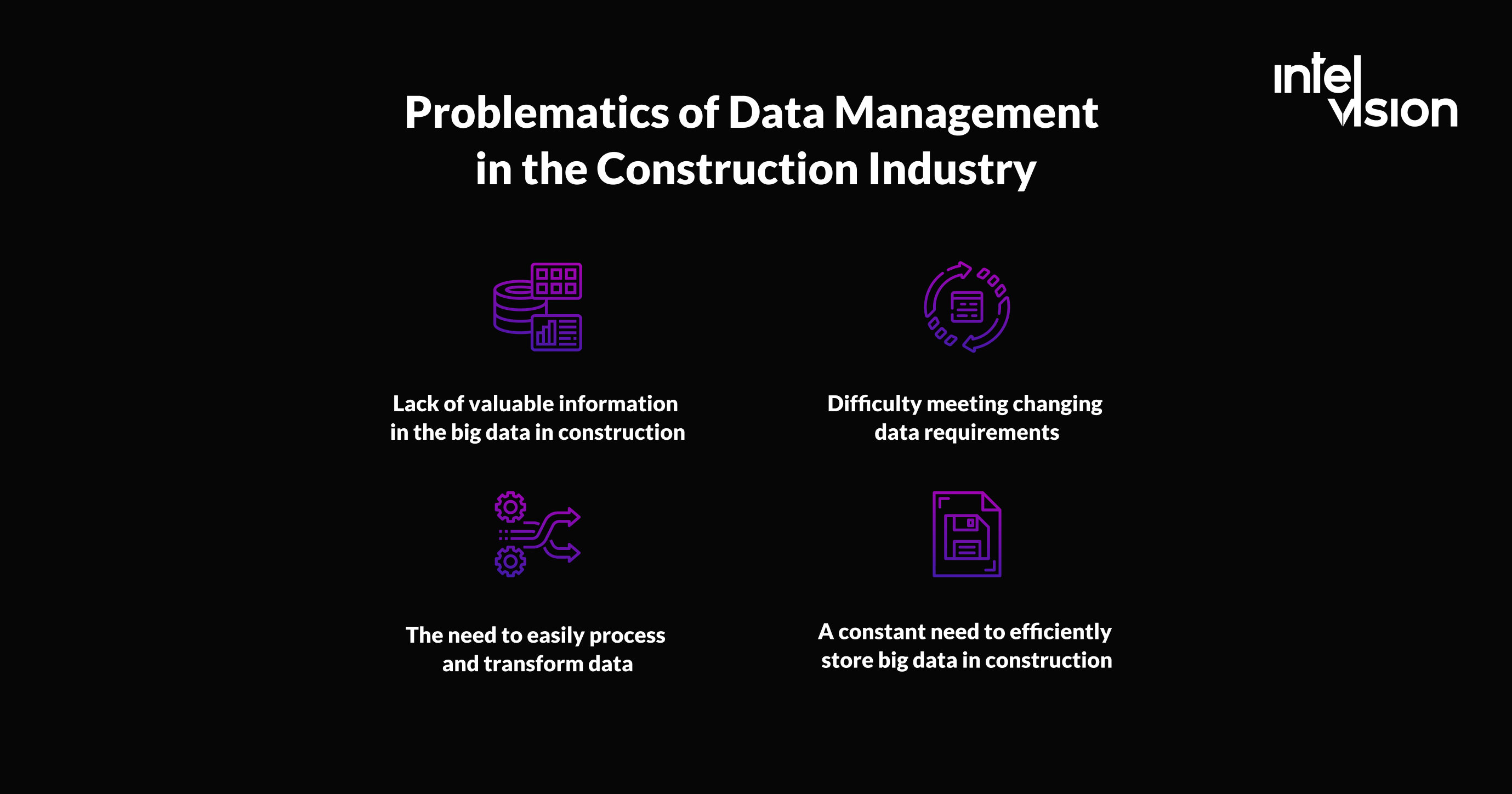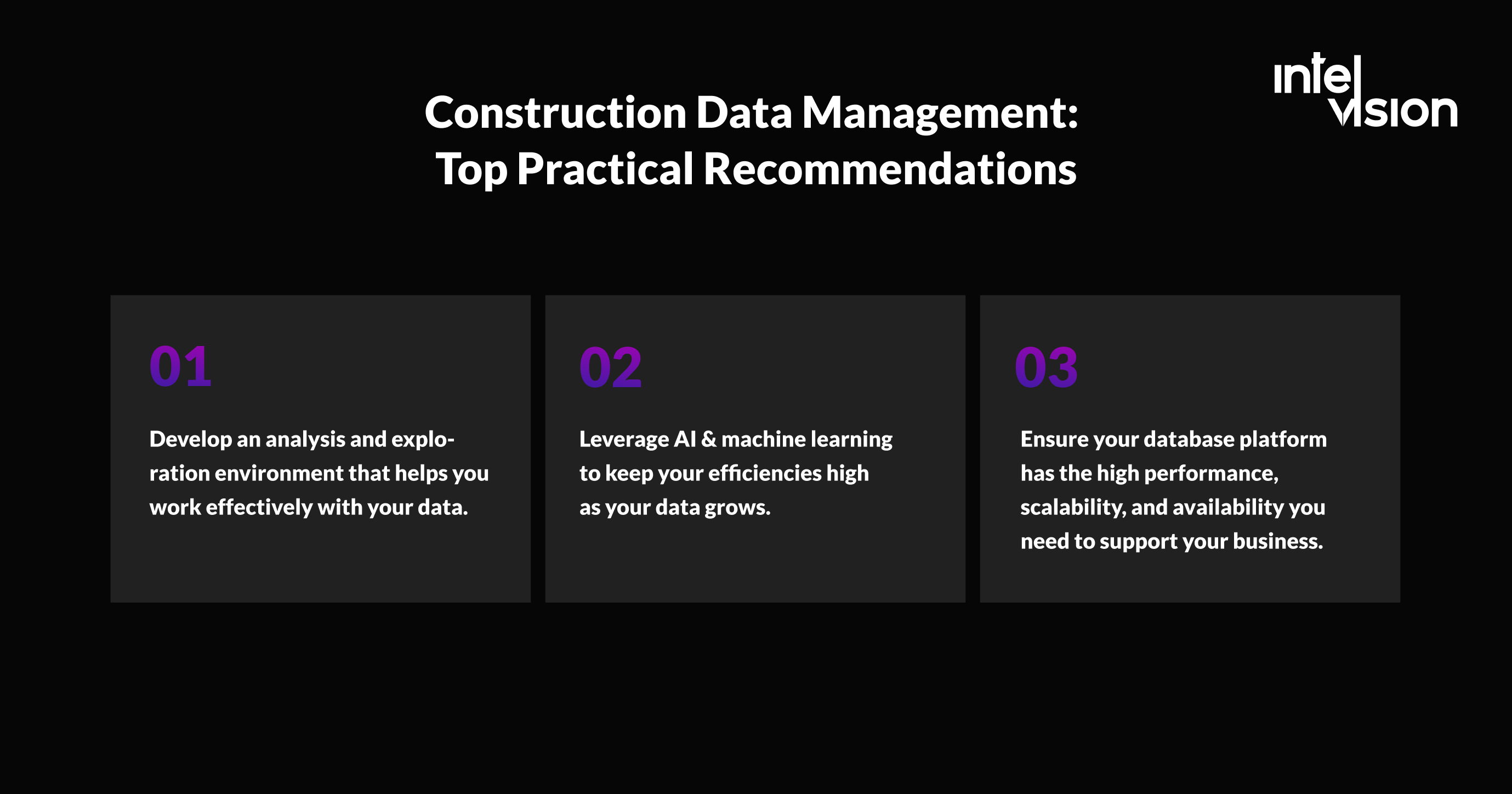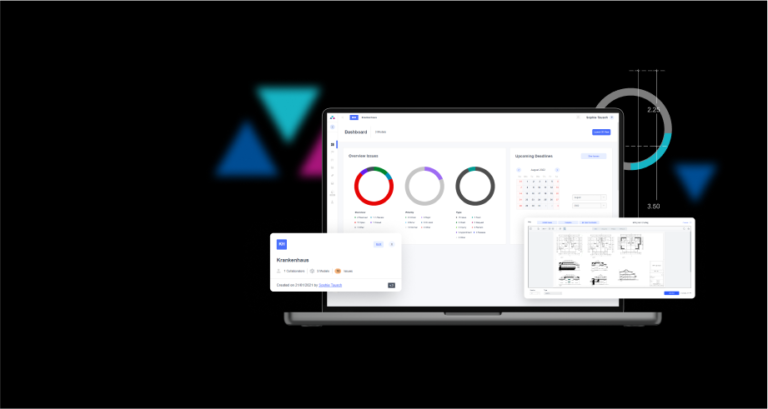
How to Make Construction Data Management a Competitive Advantage in the Industry
Everybody is talking about data, AI, and ML. Data is key to competitiveness. However, every year people produce more and more information: by 2025, the total amount of data worldwide will be 163 zettabytes (ZB), the analytical company IDC predicts. For comparison: in 2016 there was 10 times fewer data on the planet—about 16 ZB, and in 2006—only 0.16 ZB.
Now everyone clearly understands how important data management in the construction industry is. Data collection becomes the source of analytics. The real need for its use and the introduction of data-driven solutions arises when scaling processes in a company. Let’s look through what construction data management is, why it is important, and how to turn data into a high-value business asset in the construction industry.
What is Construction Data Management
Mismanaged data is useless data, no matter how much it is and wherever it is collected. Businesses must make sense of data and find relevancy in the noise that is created by diverse systems and technologies supporting today’s highly connected global economies. In this regard, data takes center stage. On its own, data is useless—companies need an effective strategy, governance, and data management model to leverage all forms of data for practical and efficient use across supply chains, employee networks, customer and partner ecosystems, etc.
Digital data management in the construction industry includes a wide range of tasks, policies, and practices, such as:
- collecting, processing, validating, and storing data;
- integrating different types of data from disparate sources, including structured and unstructured data;
- ensuring high data availability and disaster recovery;
- governing how data is used and accessed by people and apps;
- protecting and securing data and ensuring data privacy.
Every application, analytics solution, and algorithm used in a business depends on seamless access to data. At its core, a data management system helps ensure data is secure, available, and accurate. Let’s take a look at how effective construction data management changes this and makes data useful.
Problematics of Data Management in the Construction Industry
Expectations of developers from big data in the construction industry were found out by the Sage company. The survey showed that 57% of market players want to receive consistent, up-to-date financial and project information, and 48% want warnings about the occurrence of significant situations. 41% of businesses hope that big data in construction will help them predict events and avoid risks. Finally, 14% of respondents prefer to find out what factors affect the growth and fall of profits.
Today’s data management challenges are driven primarily by the exponential growth of data and the accelerating pace of business. Companies have access to more and more diverse information, which is processed faster and in greater volumes. This creates a need for effective construction data management software.
Big data analytics have already been appreciated by developers and designers from around the world. Let’s look at some of the toughest challenges companies face today, and how big data for construction is changing the conservative industry.
| Lack of valuable information in the big data in construction | Companies collect and store data from an increasing number of diverse sources: sensors, smart devices, social networks, video cameras, and live chats. But all this data will be useless if the company doesn’t know what it is, where it is stored and how to use it. Construction big data management solutions must be scalable and high-performance so that meaningful insights can be delivered on time. |
| Difficulty meeting changing data requireents | Regulations are complex, cross-jurisdictional, and constantly changing. Companies must be able to analyze their data. At the same time, special attention should be paid to personal info and its security: data must be checked against international data privacy requirements (and these requirements are becoming more stringent). |
| The need to easily process and transform data | The data found and collected is not valuable in itself—the company needs to process it. If it takes too much time and effort to transform the data into a form convenient for analysis, then the big data and construction processes will be less useful than they could be. |
| A constant need to efficiently store big data in construction | Today, companies store information in several systems at once, where any data in any format can be placed in one repository. Data scientists need to be able to quickly and effortlessly convert data from one source format to another, creating models that are suitable for virtually any type of analysis. |
Construction Data Management: Top Practical Recommendations
To successfully manage the challenges that come with construction data management, you need a comprehensive, well-thought-out set of best practices. Which recommendation to choose depends on the type of data and the industry, but the following practical recommendations will help you deal with some of the most significant challenges facing construction businesses today.
- Develop an analysis and exploration environment that helps you work effectively with your data. A data exploration environment automates as many data transformation tasks as possible, making it more efficient to create and evaluate data models. With a set of tools that eliminate the need for manual data transformation, you can speed up the process of developing and testing new models.
- Leverage AI & machine learning to keep your efficiencies high as your data grows. This keeps the database responsive at a consistently fast pace, eliminating the need for administrators and data scientists to manually perform time-consuming tasks.
- Ensure your database platform has the high performance, scalability, and availability you need to support your business. You have to be able to analyze data for making better and more timely decisions. A scalable, high-performance database platform enables enterprises to quickly analyze data from multiple sources using advanced analytics and machine learning so they can make better business decisions.
Turning Big Data Into a High-Value Business Asset: How Custom Solution May Help Your Construction Company
There are ready-to-use solutions on the construction market that will improve the processes associated with the storage and processing of data within your organization. However, they often have limited functionality or are not fully adapted to your company and business goals. That’s why a custom solution can be a great choice.
The Intelvision Project Data Management feature will help you manage project and asset data. Store your documents, correspondence, emails, contracts, purchase orders, specifications, estimates, and technical requests. Intelvision offers a comprehensive set of features to manage any amount of data.
BIM. Use the web tool to view 3D BIM models. View your asset from a bird’s eye view, rotate, zoom in, and jump directly to relevant documents, drawings, emails, requests, asset item metadata, or other BIM files. Intelvision supports building industry standard IFC files.
Corporate documents. Intelvision provides storage to support organizational units such as Finance, Human Resources, etc. You can store and manage corporate documents of any type. Numerous default reports help you control and process your valuable information.
Ready to bring a reliable software development provider on board for mission success? Drop us a line to discuss the future project!
Moving Forward
The future is hard to imagine without big data today. According to IDC experts, companies’ revenues from using this technology increased from $130 billion in 2016 to more than $203 billion by 2020.
Every year there will be more and more ways to adopt data management tools into construction processes. The use of big data with BIM platforms will allow companies to get away from paper workflow, and therefore from the main problems of the industry: construction delays, budget overruns, and slow decision making. Developers will be able to optimize business processes and reach a new level of efficiency.
Make better use of their data now—and use it to predict future events, pivot rapidly, and build resiliency into plans and business models! Transform your analytics programs into big opportunities, become data-driven, and make better decisions using data you can trust with Intelvision.
Using just the right tools—and the right people to wield them—we will set you on a trajectory for success. Explore our projects and get detailed advice on your project for free.













![$portfolio_img_mobile['title'] $portfolio_img_mobile['alt']](https://intelvision.pro/wp-content/uploads/2021/03/Group-892-262x350.png)









